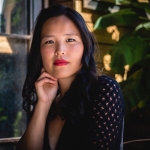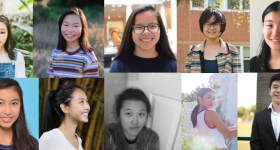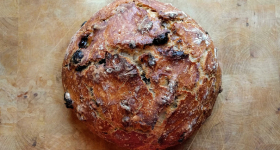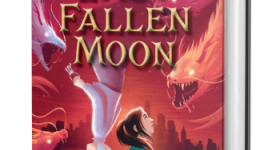The practice of cartography is as much about choosing what one draws on a map as it is about what one chooses to leave off; it is about charting the known world as well as designating the spaces where “here be dragons.” It is this negotiation of representation that Kenji Liu so deftly and beautifully navigates in Map of an Onion, the national winner of the 2015 Hillary Gravendyk Prize and finalist for the 2014 Hong Kong University International Poetry Prize.
In his introduction to the collection, Timothy Yu refers to Liu’s work as “a poetry of interruption,” pointing out that for many Asian Americans, “arrival” to the U.S. is predicated on erasure of their histories, names, and sometimes their own ancestors. “Prayer to the God of Documents” is a meditation on the speaker’s hybrid identity, who was born of “a suitable mother” but who is also “sharp edges folding / inward from his father’s / passport.” Liu begins the poem like this:
Even a baby is
a paper cut theater,
a necklace of incisions strung together
into a country.
To be born, or to live at all, Liu seems to suggest, is to trespass within the system, to evade categorization, to be “a filing system for breath” -- that is, a filing system for something that fundamentally refuses to be contained.
Kenji C. Liu
This tension between the speaker and the limits of national containment play out not only in the book’s subject matter but also through its formal devices. Throughout the collection, Liu draws on received forms, such as the Chinese qilu, but perhaps more interestingly, he translates models of digital technology into poetic form. “Search History,” for example, which meditates on the speaker’s parents’ courtship and immigration, borrows the language of the internet search and derives its form through networked associations: “Zoom and inhale the traces of their hajimemashite / in tides of traffic, rain, fish,” he writes, and later: “My eyes try to find them -- columns of insistence / scrolling through the underbrush.” Liu made a beautiful video version of the poem, which visually illustrates the power of association moving throughout this and his other poems. As an internet search leads one from search term to search term in a network of associations -- Liu’s lyric searching becomes the speaker’s means of mapping himself while evading fixity and opposition. In the face of the bureaucrat and his axe-like pen that demand documentation of a newborn’s papers, the speaker asks: “What is the opposite of yes when no is forbidden?” (“Being Born is Also a Ghost”).
The opposite of “yes,” Liu suggests, is what we locate where bureaucratic binaries break down: in the interstices where sites of erasure yield openings for haunting, for deluge, for green shoots rising through the cracks in the governmental apparatus. The opposite of yes is Liu’s child speaker transforming his designation of otherness into otherworldliness:
but i was certain i was
a big fancy kaleidoscope
made in 1977
a flame of leaves
in autumn, a bouquet of
in-betweens.
(“A History of My Complexion”)
Map of an Onion reveals that text -- whether within naturalization documentation or the books that the speaker seeks refuge in as a child -- is porous, is always breaking down, leaking, revealing a way through. Liu’s is a poetics of infiltration, with the word’s dual connotation of subversively penetrating the interstices of the bureaucratic apparatus as well as passing through something as does light, water, or breath.
Cartography, in addition to being about what is known as well as what is unknown, reveals as much or more about the cartographer as it does the territories charted. “It’s policy to record / the coordinates of our feet when we dream, / to track us past the death line,” Liu writes in “Deconstruction: No Government Can Hold a Hermit Crab.” What a country chooses to survey or bar from entry reveals as much about the character of the country as the threats it perceives from outside its borders. We need only look to the current U.S. election to see how much fear can tell us about ourselves -- perhaps more than any narrative of return to “American greatness” can. As Liu warns us in “Letter to Myself I”: “maybe freedom is a sharp fence / no matter who gives it to you” -- or for that matter, what side of that fence one is on. Liu’s speaker fearlessly lights the way for us, standing on both sides of the fence, asking: “What did you leave at the gate? / I’ll look behind you as you arrive.”










Comments